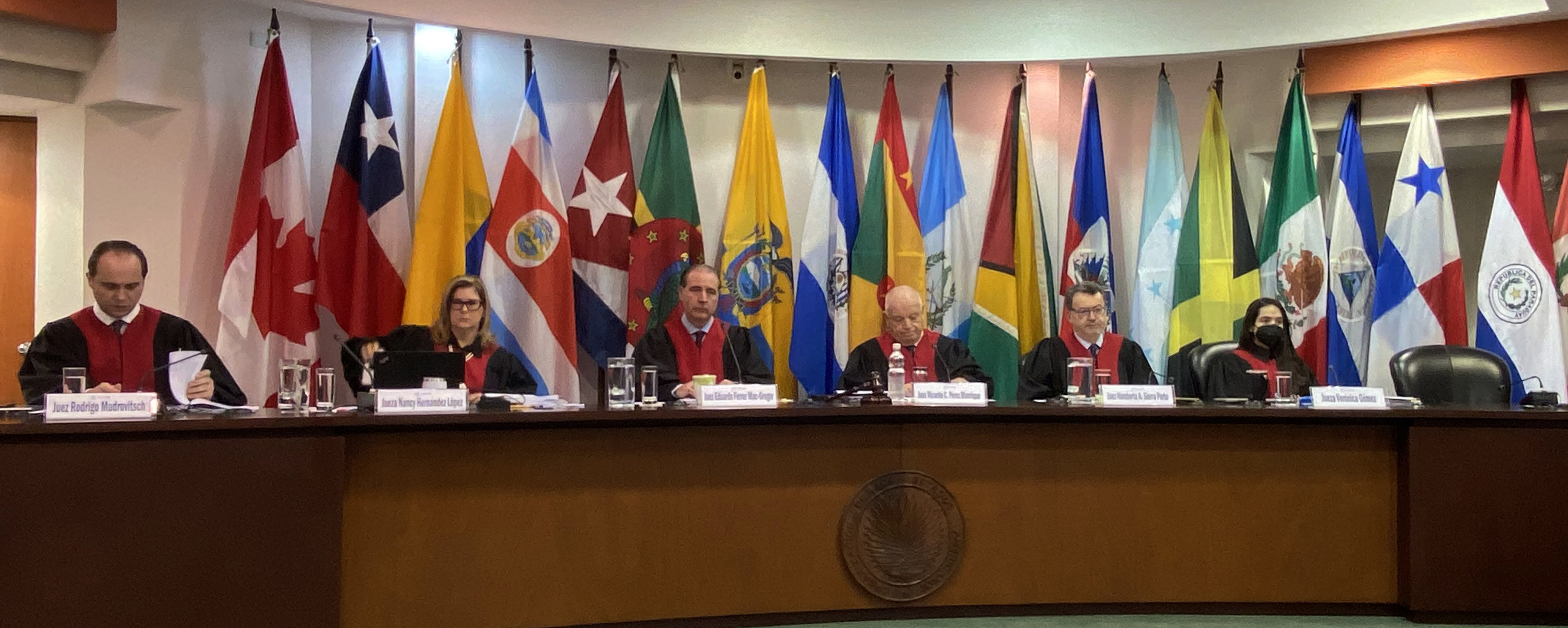Welcome to DU!
The truly grassroots left-of-center political community where regular people, not algorithms, drive the discussions and set the standards.
Join the community:
Create a free account
Support DU (and get rid of ads!):
Become a Star Member
Latest Breaking News
Editorials & Other Articles
General Discussion
The DU Lounge
All Forums
Issue Forums
Culture Forums
Alliance Forums
Region Forums
Support Forums
Help & Search
Latin America
Related: About this forumBeatriz Trial in Inter-American Court Defies Total Abortion Ban in El Salvador (Long)

Wednesday, April 26, 2023
María Luz Nóchez
On March 22 and 23, the debate over El Salvador's restrictive abortion laws relocated to the Inter-American Court of Human Rights in San Jose, Costa Rica. The defendant, the state of El Salvador, had to explain what happened in 2013 when Beatriz, a young woman who was suffering from lupus erythematosus and pregnant with a fetus diagnosed with anencephaly —lacking a brain— was denied a therapeutic abortion despite her doctors’ medical opinion that she needed one.
Beatriz had given birth before, and her first pregnancy had also put her life at risk. But this time, when she was 19 weeks pregnant, the hospital’s medical committee believed that carrying the pregnancy to term could cause severe damage to Beatriz’s body and health and concluded that the pregnancy should be terminated. But El Salvador’s government and justice system would not allow it. Moreover, its arguments at the IACHR demonstrated that the Salvadoran state is proud of how it handled the situation.
The lawsuit contends that denying Beatriz access to an abortion irreversibly harmed her physical and mental health. Beatriz was 22 years old at the time. On Wednesday, her mother, who witnessed Beatriz’s pregnancy ten years ago and heard her daughter ask for something to be done to prevent other women from suffering a similar fate, testified about her own indignation at the time and ever since: “Why did they put her through that torture when she was in the hospital every day for her treatment?”
In a trial that featured doctors and international experts, Beatriz's mother's testimony linked pregnant women’s mental health and Salvadoran women’s economic situation to the debate over the country’s current terminal ban on abortions. In San José in late March, a discussion frequently centering individual political beliefs focused instead on a specific case: the experience of a woman whose last name was withheld to protect the entire family’s privacy and safety. Beatriz lived in Jiquilisco, a fishing municipality, where she worked on a farm with her parents as a child before becoming a domestic worker as a teenager. In the final years of her life, she was a tortilla maker despite the fact that, her mother said, Beatriz’s hands and feet had begun to deform. “My daughter was a strong woman,” she recalled in her testimony.
. . .
That was also the central point in the testimony of US lawyer and academic Paolo Carozza, whom the state called as an expert witness. Between 2006 and 2009, Carozza was a member of the IACHR and served as its president in 2009. “Human dignity is universal,” he said at the beginning of his testimony. He went on to explain that in cases like Beatriz's —in which the unborn child is ill, and its life is unviable after birth— valuing one being’s dignity over another is “arbitrary” and “incompatible with the principle of non-discrimination.”
Between 2019 and 2020, Carozza was a member of the Trump administration’s Commission on Inalienable Rights. He argued that the Court cannot restrict the right to life and that the principle of the state’s discretion in determining its protection must prevail. Questioned by the family’s lawyers about whether an unborn fetus’ rights should be absolute in cases in which the mother's life is at risk, Carozza conceded that, “if by absolute we mean that a pregnancy can never be terminated, even when the woman's life is directly in danger, [then] no, I don't agree with that.”
More:
https://elfaro.net/en/202304/el_salvador/26823/beatriz-trial-in-inter-american-court-defies-total-abortion-ban-in-el-salvador